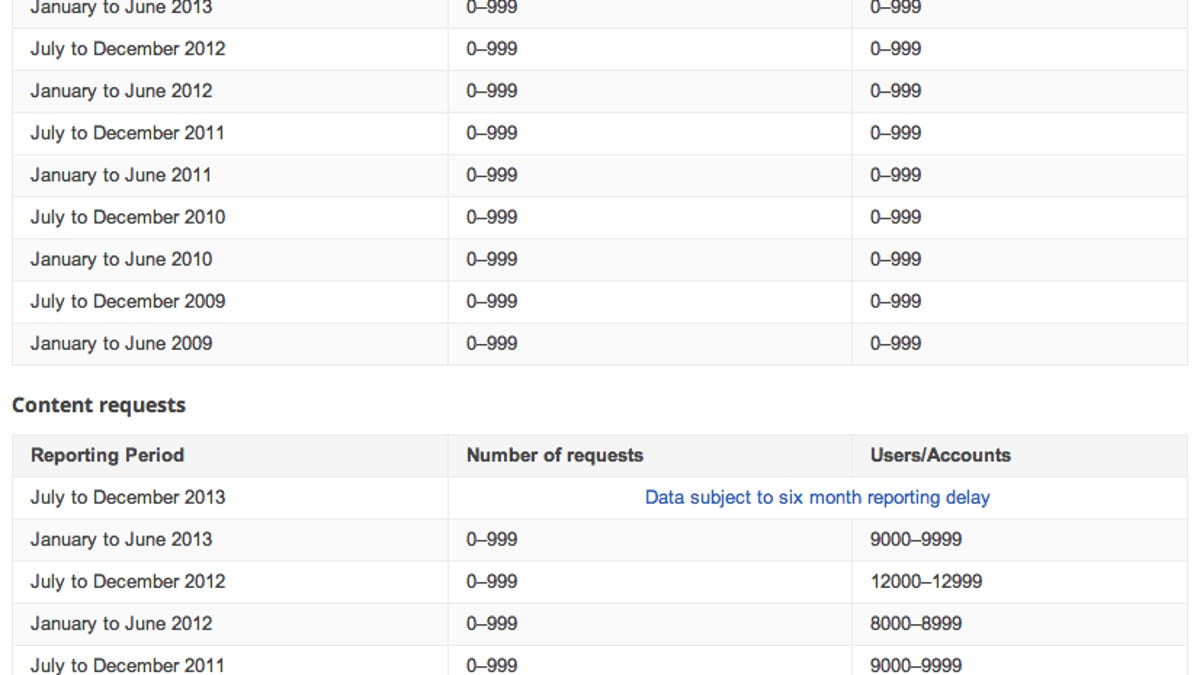Tech firms reveal even more about FISA requests
Six major technology companies publish new statistics on National Security letters and FISA Court requests made of them.

Google and other top tech firms are beginning to flex their transparency muscles a bit, following the resolution of a lawsuit last week against the US Department of Justice to allow them to reveal more about national security data demands made of them.
On Monday, six major companies -- Google, Microsoft, Apple, Yahoo, Facebook, and LinkedIn -- revealed more information about government requests made with National Security Administration letters. The letters can request both content-related material, and non-content, which can refer to name, age, and location data of user accounts. Revealed customer account requests cannot be specific, and are limited to being reported in blocks of 1,000.
"Today, for the first time, our report on government requests for user information encompasses all of the requests we receive, subject only to delays imposed by the Department of Justice regarding how quickly we can include certain requests in our statistics," wrote Richard Salgado, Google's legal director of its Law Enforcement and Information Security division.
Salgado also included a request to Congress to change the laws so that tech firms can reveal specific numbers.
"The new information we are releasing today marks a significant step forward," said Colin Stretch, Facebook's general counsel.
Currently, the tech company disclosures only reveal an imprecise summary: 12,000 to 12,999 user accounts requested by FISA content requests, for example, during July to December 2012. That number, by the way, represents the peak in a spike of affected accounts at Google. Other companies saw a similar rise in FISA requests during the same period.
Brad Smith, Microsoft's general counsel, struck a more contrarian tone in his blog post by noting that not all orders received by Microsoft resulted in information being disclosed to the government. "Microsoft has successfully challenged requests in court, and we will continue to contest orders that we believe lack legal validity," he said.
American Civil Liberties Union attorney Alex Abdo acknowledged the reports were helpful, but that "they're not nearly enough" for the public to evaluate the breadth and impact of government surveillance. "The limited information that can be gleaned from the reports suggests that the government is using its spying powers extremely broadly, likely infringing on the privacy rights of many innocent Americans. The administration should grant the companies' requests to release more detailed reports, and Congress should require greater transparency and accountability when it comes to NSA surveillance," Abdo said.
Across the board, all the charts show that NSA requests for data have not only increased over time, but that they spiked in requested information around a year ago.
Updated at 5:10 p.m. PT: with statement from the ACLU.

